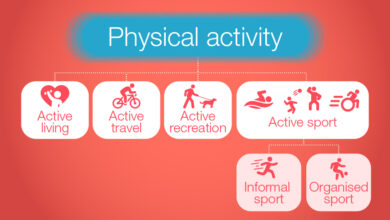The benefits and drawbacks of sports specialization for young athletes

Sports specialization refers to the practice of focusing on one particular sport and training intensively in that sport to achieve a high level of performance. Many young athletes and their parents believe that sports specialization is necessary to succeed in sports, but is it really the best approach? In this article, we will explore the benefits and drawbacks of sports specialization for young athletes.
Introduction
Sports specialization has become increasingly popular among young athletes in recent years. Many believe that early specialization is necessary to achieve success in sports, but others argue that it can be detrimental to a young athlete’s physical and mental health. In this article, we will examine both the benefits and drawbacks of sports specialization for young athletes.
What is sports specialization?
Sports specialization involves focusing on one sport and training intensively in that sport, often to the exclusion of other sports or activities. This may involve year-round training and competing, often at a high level. Specialization may begin as early as age six or seven, and become more intense as the athlete gets older.
The benefits of sports specialization
There are some benefits to sports specialization for young athletes. These include:
Improved skill development
Focusing on one sport allows young athletes to develop their skills more fully. By spending more time on one sport, they can hone their technique and master the skills necessary to excel in that sport.
Increased opportunities for competition
Specializing in a sport often means more opportunities for competition, which can help young athletes improve their performance and gain exposure to college and professional recruiters.
Increased motivation
For some young athletes, focusing on one sport can increase their motivation to train and compete, leading to better performance.
Improved time management skills
Juggling the demands of school, training, and competition requires excellent time management skills. Sports specialization can help young athletes learn how to balance their time and develop the discipline necessary for success.
The drawbacks of sports specialization
While there are some benefits to sports specialization, there are also some drawbacks. These include:
Increased risk of injury
Specializing in a sport can increase the risk of overuse injuries, as young athletes may be repeating the same motions and putting stress on the same muscles and joints over and over again.
Burnout
Focusing exclusively on one sport can lead to burnout, as young athletes may become bored or overwhelmed with the sport and lose their passion for it.
Social isolation
Young athletes who specialize in one sport may miss out on the social benefits of playing multiple sports or participating in other activities. This can lead to social isolation and a lack of diversity in experiences.
Limited skill development
Focusing exclusively on one sport can limit a young athlete’s skill development in other areas. This may make it more difficult to transition to other sports or activities later in life.
The risks of sports specialization
There are also some risks associated with sports specialization. These include:
High-pressure environments
Specializing in a sport can create a high-pressure environment, as young athletes may feel pressure to perform at a high level in order to maintain their status in the



